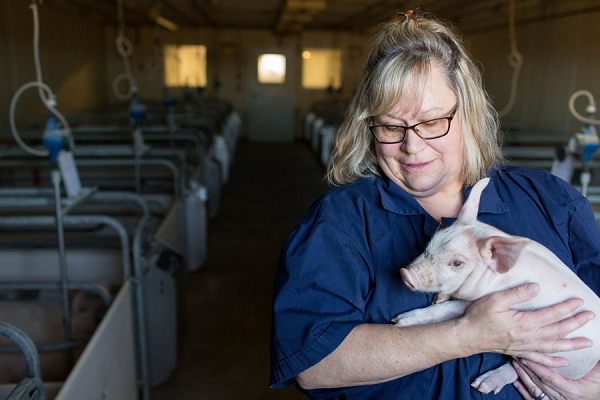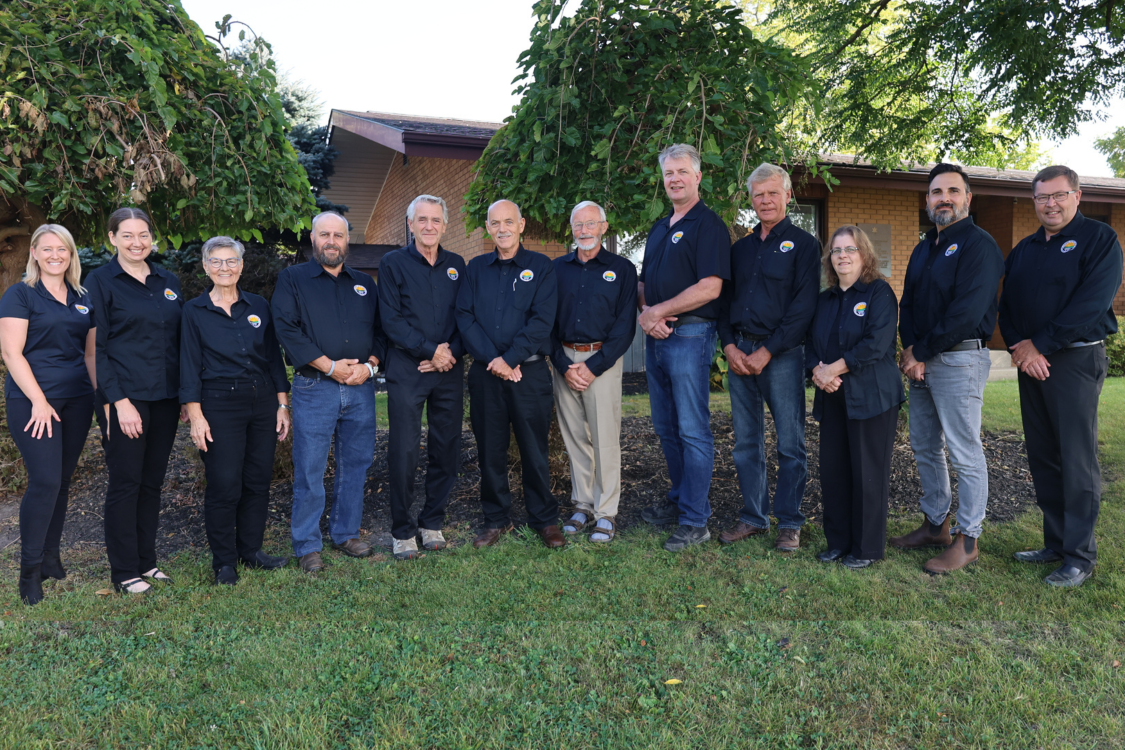Ted Bile
Al Mussel
Canada’s agriculture exports face new challenges, such as China’s threat to apply tariffs to Canadian canola, say agricultural economist Al Mussel and trade analyst Ted Bilyea.
They have laid out implications of this trade retaliation in a report from Agri-Food Economic Systems.
Al Mussel
Ted Bilyea
World Trade Organization rules allow a country to place tariffs on products that are subsidized and/or sold below the cost of production.
But in a government such as China, it’s difficult to know whether a product is subsidized or being sold below cost of production because the government owns the factories that make electric vehicles.
And what’s happening here is that other countries are reacting to the tariff the United States applied to Chinese-made electric vehicles.
This has nothing to do with subsidies or the cost of producing canola, but China is exercising geo-political clout, the report said.
The new political and trade environment “has resulted in industrial policies by global powers that leave Canada exposed under the rules-based world trade system, and agri-food has become a favored target in trade retaliation,” the report said.
“It is likely that Canada will face more trade actions against agri-food in the future- and in relation to other matters, that really have nothing to do with agri-food,” Mussel and Bilyea wrote.
“Canada needs a rapid pivot to anticipate a future of adverse effects from large countries’ industrial policies, and a less friendly international trade environment- not readily contained by the rules-based system.
“But Canada still needs the rules-based system that shields smaller economies from geo-political intimidation”, said Mussell.
“We need a mixed strategy- with our own industrial policies, new trade alliances, but also supporting the system of trade rules we have now.
“Canadian agri-food policy needs to align with this,” he wrote, and that “represents a big shift”.
Most of Canada’s economy, and agricultural economy, is
integrated with the global economy, so Canadian
industrial policies do not start with a clean slate- and
could adversely impact others, and be adversely
impacted by others, they say.
Conversely, Canada can be badly
disaffected by other’s industrial policies- particularly
those of larger economies, and in industries where
Canada has critical interests.
Adversely impacted countries will not hesitate to
retaliate. However, to the extent that this system
struggles to effectively address the milieu of policy
instruments of large economy industrial policies, and
their sheer magnitude of effect, some disaffected parties
may seek to retaliate in whatever manner that they see
as effective and in a manner that addresses their
sensitivities.
Thus, an industrial policy intended to promote specific
industries must anticipate prospective international
blowback, the nature and targets of the blowback, saying state-owned companies are thsecondary policy prepared to address the collateral
damage. It makes holistic industrial policy difficult, risky,
and requiring of greater depth of analysis, strategy,
diplomatic effort, and bold action than has previously
been required.
They quote U.S.Trade Representative Katherine Tai saying there is “a race to the bottom – low cost, low standards and less
sustainable world.”
She states that we have moved into a new trading world which requires both trade defense instruments (or what Europe calls trade remedies) as well as offensive strategies which involve investments in people, green energy and new technology- industrial policies.”
And that represents a challenge to Canada’s economy and agricultural exports.
Musssel and Bilyea say “there is a pattern of agri-food becoming the go-to target for trade retaliation, and for political tensions spilling over into agri-food trade.”
The world demand for food imports is increasing and Canada is one of the few countries which have capacity to fill serve this demand.
“Conversely,Canada can be highly vulnerable from the direct effects of retaliation to its industry strategies against its agri-
food sector,” they write.
“The direct effect of market denial or constraint is lower prices to Canadian farms and the downstream export supply chain.
“There are secondary effects possible as well.
Denial or constraint of market access by importing countries,
which initially appears counterintuitive, can have the
effect of “softening up” the exporting country for later
foreign direct investment/acquisition by the importer,
after which the importing country will resume imports-
on terms more advantageous to the importer,” they write.
In other words, China could follow up on tariffs on Canadian canola by buying Canadian farms and supply-chain companies and be in a position to profit from lifting the tariffs.
“Moreover, certain types of actions taken by importers against
exporters- such as increased tariffs or duties- serve to
strengthen development of the importing country’s
domestic production sector through higher prices, even
if the price increase decreases consumer demand in the short term.
So, in a nutshell, when global elephants such as the U.S. and China battle, it's the mice, such as Canada, who get trampled.
-30-




